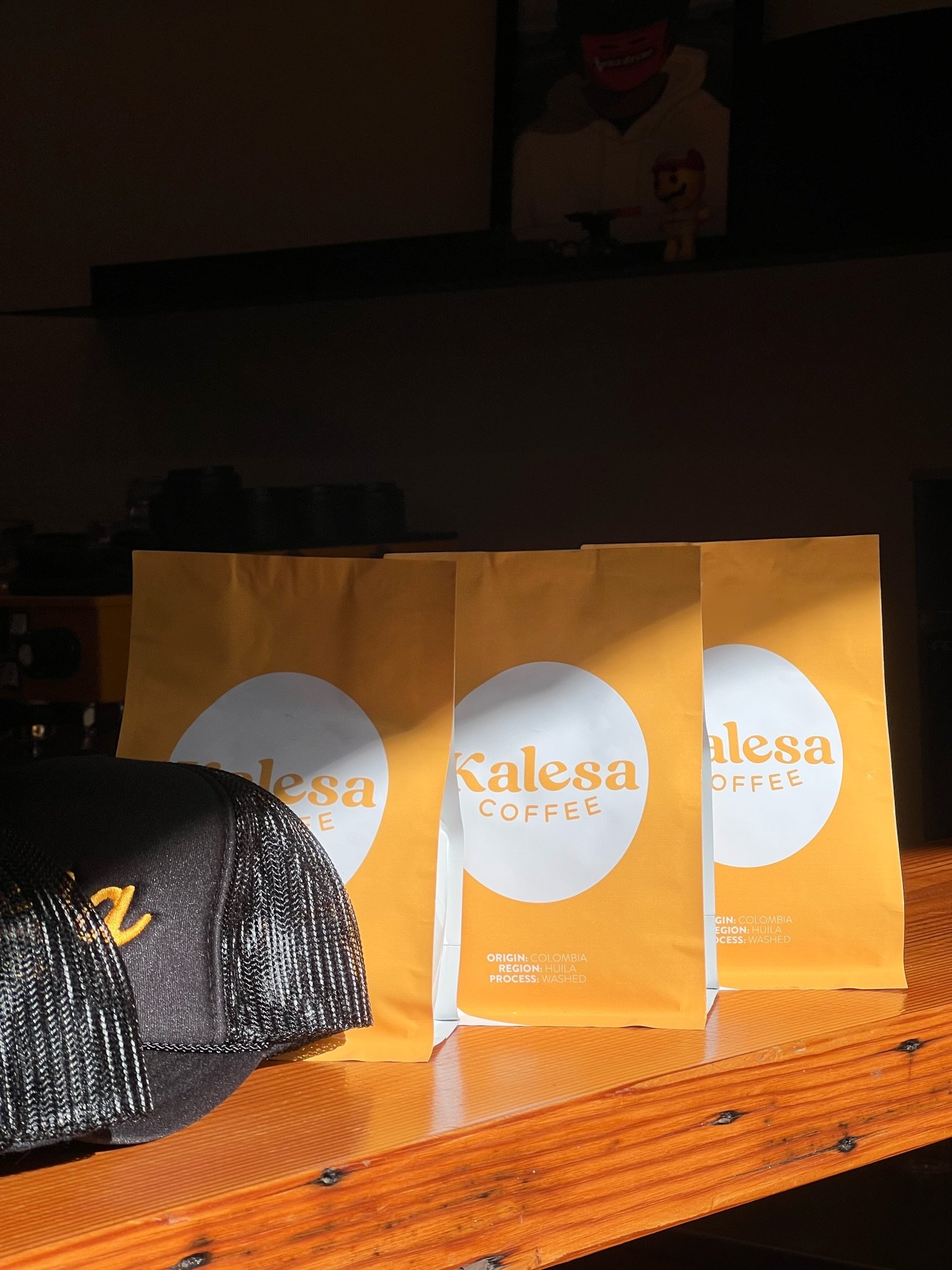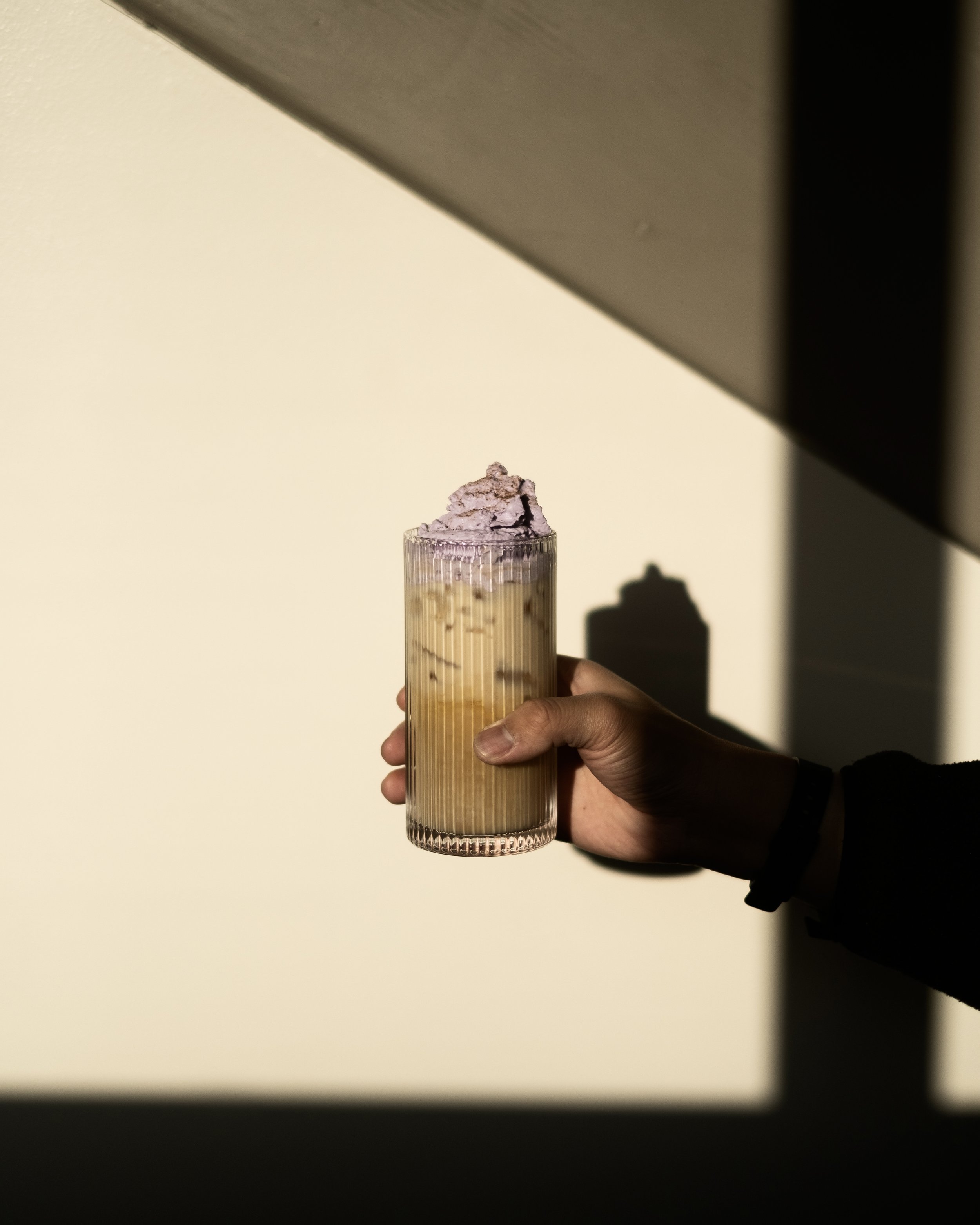How Kalesa Coffee brings Filipino flavors to the front while building bridges for self-discovery
The Pacific Northwest is a powerful, alluring mecca for coffee connoisseurs. But only in the last few years has the region seen anything other than the beanie-toting neck-bearding cafes of PNW fame. Tim Almeda and Keanu Banayat, owners of the Gotham Building’s Kalesa Coffee, are happy to drive that changing narrative. Their menu and mentalities are already rallying flags for mixed-race, BIPOC, and Filipinx caffeine heads in Portland’s coffee scene.
“Over the last few years, we’ve wanted to explore more of who we are,” Almeda said. “We fell in love with this industry, and it’s a natural bridge to incorporate our experience into the coffee world.” Banayat pointed out how astonishing their trajectory has been. “We’re protecting and building a shop around our culture,” he added. “How do we build a space just for us?”
The two friends grew up in the Bay Area, thick as thieves, before attending separate colleges in Southern California. Despite pursuing different studies they kept their friendship alive through their shared work in Bay Area cafes. All through their time in the coffee industry — and in their friendship — they discussed opening their own business that incorporated their Filipinx identities.
“That’s where we fell in love with coffee but those circles were very white,” Almeda said.
Almeda and Banayat worked at sister coffee businesses and remember customers mistaking them for each other, though they neither looked alike nor worked at the same shop. After college, they moved to Portland — Almeda in 2016 and Banayat in 2018 — looking to leave what they considered a complacent Bay Area cafe scene behind. But they found the coffee industry in the Pacific Northwest all the more homogenous.
For the first four years in Portland, a secondhand coffee cart sat in Almeda’s garage, and all the while it waited there it worked as a fan to the two’s coffee-dream flames. They felt like their own project was always 30 years off, a dream of a future dream. But once both of the owners were living in the area, and those both macro and micro racist experiences in the majority-white shops sprouted up again, they decided to act on it sooner rather than later.
“A lot of Asian Americans are told to go into something safe,” Banyat said.
Tired of sitting on the sidelines, the two branded the cart as the bones of Kalesa and started popping up at restaurant Magna in 2020. Two years later, the entrepreneurs took up their current lease near the Fremont Bridge and have gotten plenty of love for their work so far.
Portland Monthly named Kalesa amongst its favorite indie coffee shops, praising the duo’s coconut cold brew and pandan and ube crinkle cookies from Kalat House. Almeda and Banayat love incorporating sweet corn on their menu after seeing family members enjoying the dessert as kids.
Courtesy: Kalesa Coffee
It’s still a time of discovery for the two coffee and culture alchemists, who seek to understand and explore their sense of self and Filipino identities. Almeda has only been to the Philippines once, and Banayat has yet to visit. They want to learn Tagalog and offer something about the Filipino culture they know, but also the parts they’re still learning about, too.
Their shop is anything but familiar, they both added, as Filipino traditionalists sometimes fault them for leaving out certain ingredients or flavors. Whenever people ask them about particular items, Banyat said they remind customers not everyone’s Filipino upbringing is the same.
“Just because we’re not Filipino enough for someone doesn’t mean we’re not Filipino,” Almeda said. “We grew up Filipino, we look Filipino, so it’s been an identity journey for us, too.” To wit, an older woman came into their shop in spring 2023 and asked Banayat if he spoke Tagalog, disappointed when he confirmed that he did not.
The racial justice movements that grew in 2020 encouraged both owners to interrogate what it means to be Filipino at all. Down the road, the duo would love their business to become an incubator for others in their community to multiply and duplicate Kalesa’s dreams alongside their own.
“If being Filipino is only about being or looking or speaking a specific way, then we’re just reiterating the fact that our upbringing in these shops was right. We came up in hella white spaces. But now we have a space to liberate ourselves,” Banayat said.



